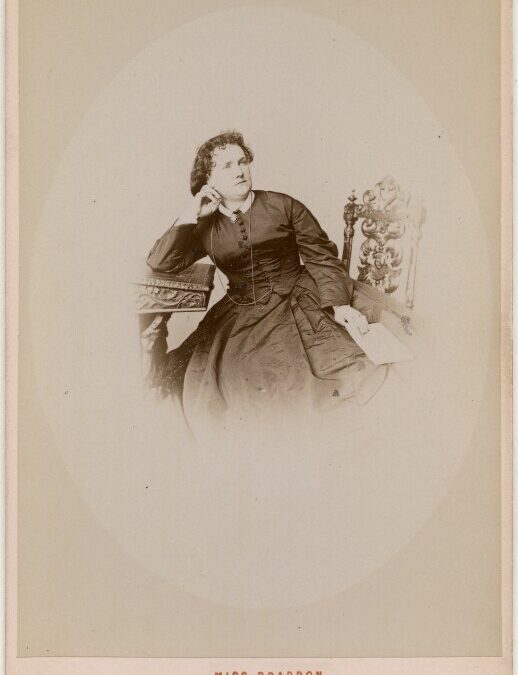 The Doctor’s Wife is Braddon’s free adaptation of Flaubert’s Madame Bovary. Like Emma Bovary, Isabel Gilbert, the doctor’s unhappy wife, looks for romance. Unlike Emma, Isabel is never sexually seduced. She’s sullied but never ruined. There are...
The Doctor’s Wife is Braddon’s free adaptation of Flaubert’s Madame Bovary. Like Emma Bovary, Isabel Gilbert, the doctor’s unhappy wife, looks for romance. Unlike Emma, Isabel is never sexually seduced. She’s sullied but never ruined. There are...
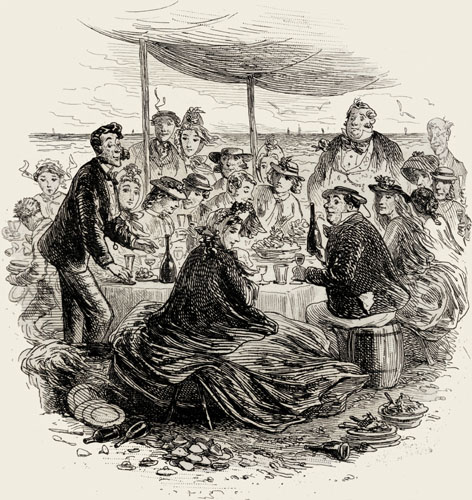 Trollope’s beach picnic in Can You Forgive Her (1864) is highlighted with a stern warning: “Yarmouth is not a happy place for a picnic. A picnic should be held among green things. Green turf is absolutely essential. There should be, if possible, rocks, old...
Trollope’s beach picnic in Can You Forgive Her (1864) is highlighted with a stern warning: “Yarmouth is not a happy place for a picnic. A picnic should be held among green things. Green turf is absolutely essential. There should be, if possible, rocks, old...
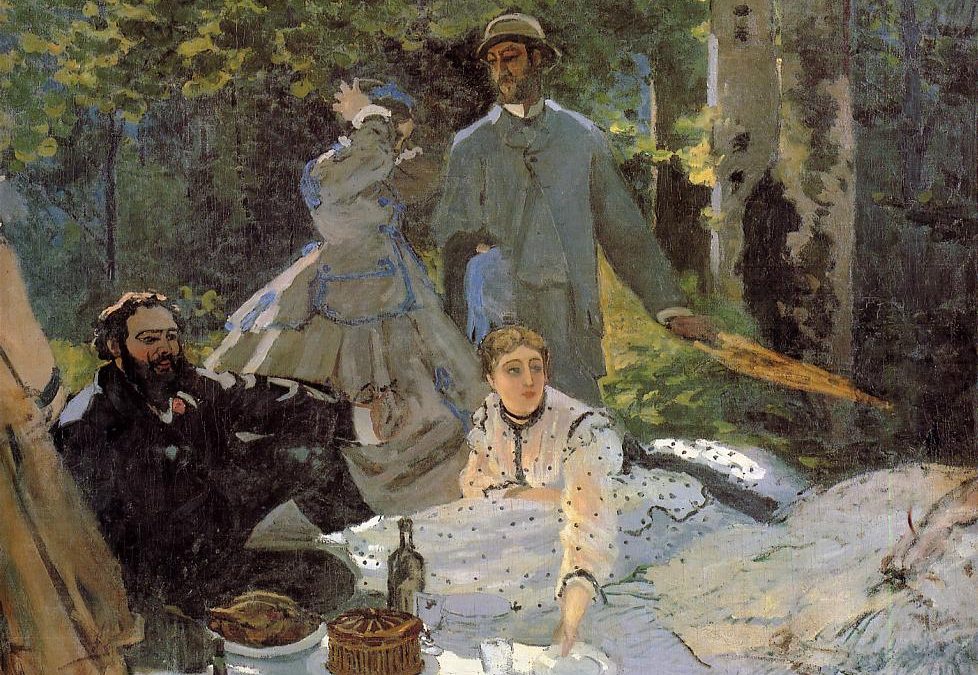 Monet responded to Manet’s Le déjeuner sur l’herbe his painting in 1865 but left it uncompleted. Unlike Manet, who painted in the studio, Monet painted outdoors. This presented logistical problems because his picnic was to be monumental, approximately 15 x 20...
Monet responded to Manet’s Le déjeuner sur l’herbe his painting in 1865 but left it uncompleted. Unlike Manet, who painted in the studio, Monet painted outdoors. This presented logistical problems because his picnic was to be monumental, approximately 15 x 20...
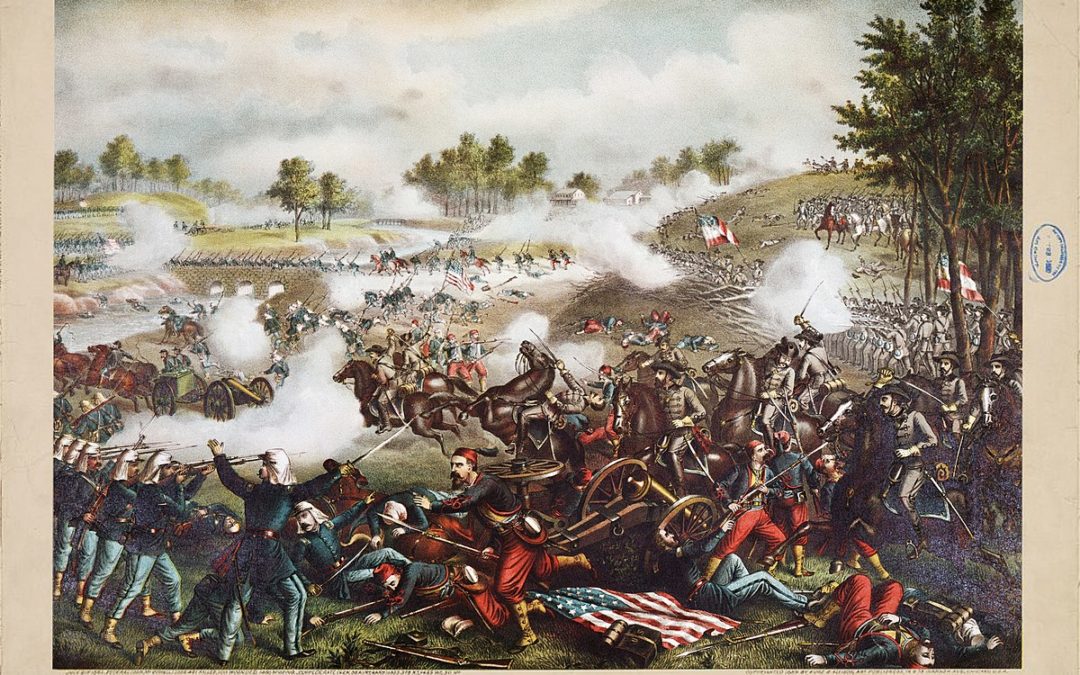 The phrase “No picnic in May” was already a cliché in July 1861 when Melville wrote in the aftermath of Bull Run, also known as the Battle of Manassas. It was an unexpected defeat for the Union army that deflated expectations of an easy victory against the Confederacy...
The phrase “No picnic in May” was already a cliché in July 1861 when Melville wrote in the aftermath of Bull Run, also known as the Battle of Manassas. It was an unexpected defeat for the Union army that deflated expectations of an easy victory against the Confederacy...
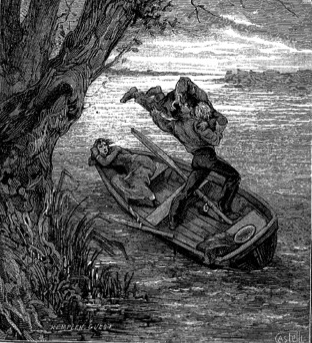 Thérèse Raquin and her lover Laurent Le Claire murder her husband Camille at a picnic. It’s a pivotal episode, proving Zola’s contention that people acting out the “fatalities of their flesh” become brutes humaines. Everything about this picnic...
Thérèse Raquin and her lover Laurent Le Claire murder her husband Camille at a picnic. It’s a pivotal episode, proving Zola’s contention that people acting out the “fatalities of their flesh” become brutes humaines. Everything about this picnic...
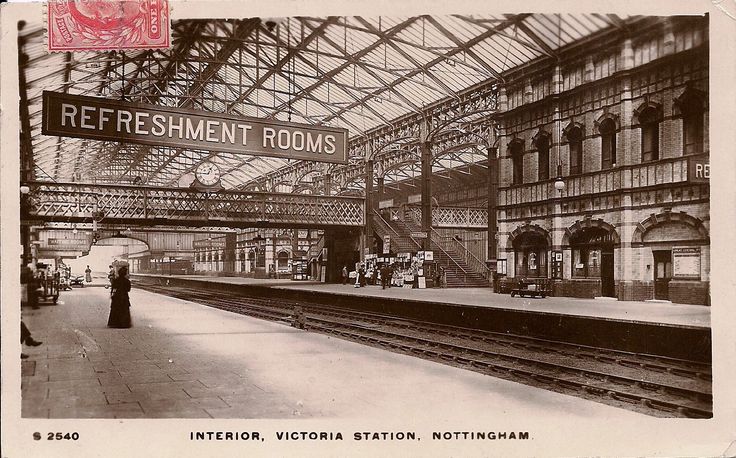 Dickens vented his distaste for English travel food, especially sandwiches served in cold, comfortless train stations. The Boy at Mugby Station working in h Refreshment Room gleefully tells anyone who will listen (or not) how awful the refreshments (if they can be...
Dickens vented his distaste for English travel food, especially sandwiches served in cold, comfortless train stations. The Boy at Mugby Station working in h Refreshment Room gleefully tells anyone who will listen (or not) how awful the refreshments (if they can be...
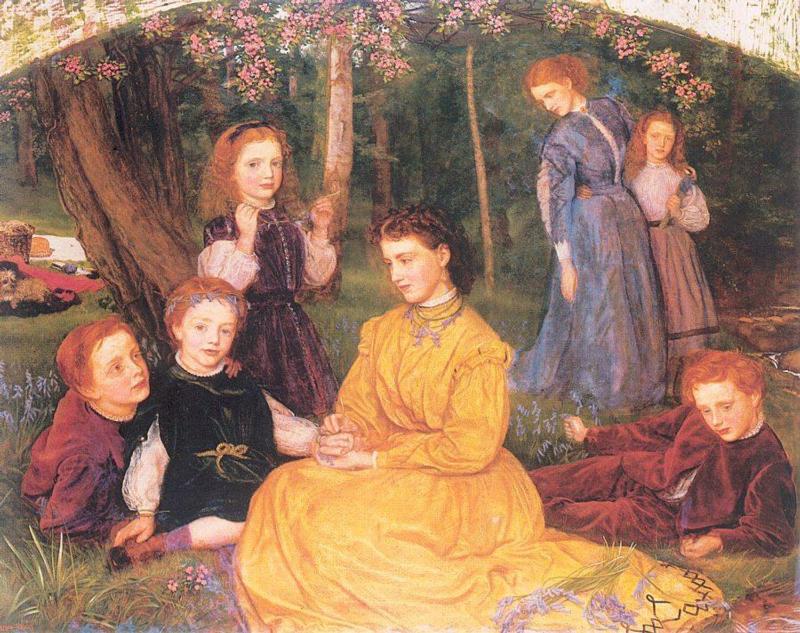 Hughes used a picnic as a theme for a family portrait of the Pattinson family. The title he gave was A Birthday Picnic – Portraits of the children of William and Anne Pattinson of Felling, near Gateshead. A red table with food in the left background, but it is...
Hughes used a picnic as a theme for a family portrait of the Pattinson family. The title he gave was A Birthday Picnic – Portraits of the children of William and Anne Pattinson of Felling, near Gateshead. A red table with food in the left background, but it is...
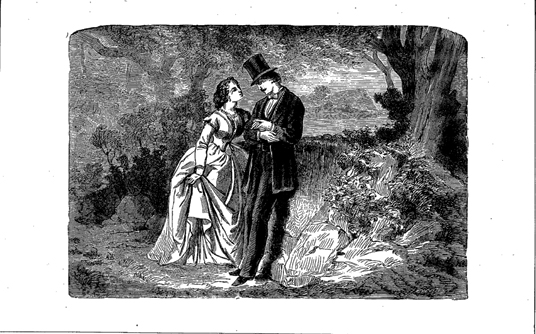 Zola’s Madeleine Férat is dedicated to Édouard Manet. Defying the critical mainstream, Zola accepted Manet’s visual realism and his frank sensualism of Le déjeuner sur l’herbe and Olympia, which Zola defended against adverse criticism. Zola’s...
Zola’s Madeleine Férat is dedicated to Édouard Manet. Defying the critical mainstream, Zola accepted Manet’s visual realism and his frank sensualism of Le déjeuner sur l’herbe and Olympia, which Zola defended against adverse criticism. Zola’s...
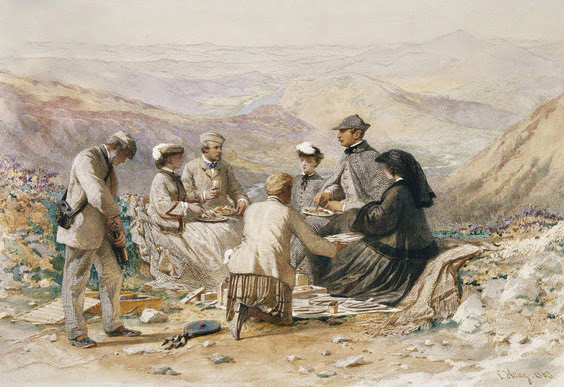 Haag’s Luncheon at Cairn Lochan shows the royal family picnicking in Scotland. Painted in 1868, Haag based the scene on an episode in 1861, three months before Prince Albert’s death. Yet, Haag shows the Queen dressed in her habitual black. She is accompanied by Albert...
Haag’s Luncheon at Cairn Lochan shows the royal family picnicking in Scotland. Painted in 1868, Haag based the scene on an episode in 1861, three months before Prince Albert’s death. Yet, Haag shows the Queen dressed in her habitual black. She is accompanied by Albert...
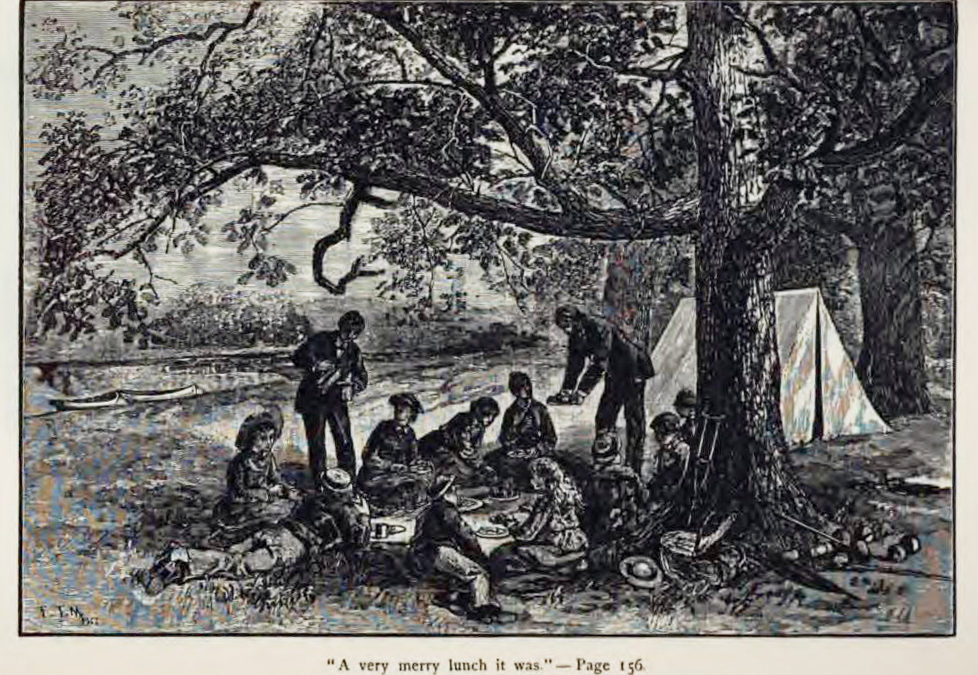 “Sunshine and laughter are good omens for a pleasure party,” Alcott writes in Little Women. And when Laurie writes to Jo to explain his intentions, he promises sunshine and laughter. Dear Jo, What ho! Some English girls and boys are coming to see me...
“Sunshine and laughter are good omens for a pleasure party,” Alcott writes in Little Women. And when Laurie writes to Jo to explain his intentions, he promises sunshine and laughter. Dear Jo, What ho! Some English girls and boys are coming to see me...











